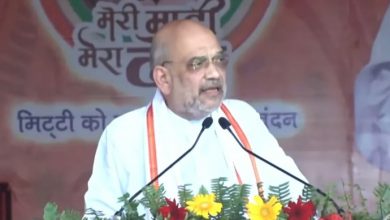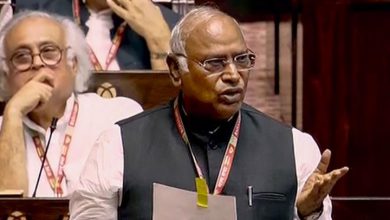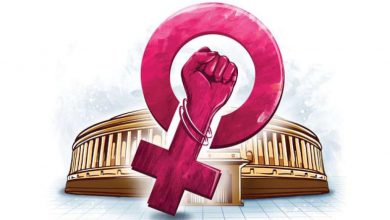For the BJP, a Troubling National Election Outlook

A year ago, the Bharatiya Janata Party looked almost certain to retain power after the next national election. But recent opinion surveys show its popularity waning. A Lok Sabha majority for the party on its own now appears unobtainable. Even if its seat total slips badly, it may still be able to form a government with the support of allies, but they may demand a change of prime minister.
In May, a CSDS-Lokniti survey found that only 22% of the Scheduled Castes favour the BJP, down 8 percentage points since January. The story is similar among the Scheduled Tribes. Support from farmers plunged from 49% a year earlier to 24%. Among the other findings:
61% of all those surveyed said that the government had done badly at controlling prices.
55% said it had performed poorly at curbing corruption.
61% said that the government was corrupt.
64% had a negative view of development under the BJP.
57% said that jobs – Modi’s signature promise of 2014 – are harder to find under the BJP.
47% were dissatisfied with the government’s overall performance – up from 27% a year earlier.
38% of 2014 voters for the BJP and its allies did not want them re-elected.
If we consider the BJP’s prospects state-by-state, a similar picture emerges. Let us begin with states where the BJP may make gains. Its best hope is Odisha, where it won one of 21 seats in 2014. This appears to be the only state where its popularity has risen sharply. It is risky to underestimate chief minister Naveen Patnaik, but the BJP might pick up between 10 and 15 seats there.
Modest gains may be possible in the Northeast. The BJP might improve a little in Assam, where it won 7 of 14 (although recent surveys show it trailing), and in the smaller states where it won 1 of 10. It may also gain a handful in West Bengal where it won 2 of 42 in 2014.
But taken together, those states elect only 87 MPs. That number is dwarfed by the 326 seats where the BJP will probably lose some or many.
It is likely to lose a few in Delhi (where it won 7 of 7), Haryana (7 of 10), Chhattisgarh (10 of 11), Gujarat (26 of 26), Uttarakhand (5 of 5) and Himachal Pradesh (4 of 4). Those states elect 63 MPs.
It will probably lose a few and perhaps many in Bihar (where it won 22 of 40, with a further 9 going to its allies) and Jharkhand (12 of 14). Also in this list is Karnataka (17 of 28). The uneasy alliance between Congress and the Janata Dal (Secular) appears set to survive at least until the Lok Sabha election, and is likely to capture a few additional few seats. The BJP will probably lose some, perhaps many, in Maharashtra (where it won 23 of 47) if no agreement is reached with the Shiv Sena. Even if those two parties contest together, perceptive observers in the state believe that each will try to ensure the defeat of candidates from the other. These states elect 129 MPs.
The party may lose massively in Uttar Pradesh if the alliance between the Samajwadi Party and the Bahujan Samaj Party holds up, perhaps with understandings with the Rashtriya Lok Dal and/or the Congress. Most of the 71 of 80 seats that the BJP won there in 2014 are at risk.
Finally, the BJP appears certain to lose a large number of seats in two other sizeable states. In Madhya Pradesh (where it won 27 of 29), a recent survey found the Congress with a comfortable lead. In Rajasthan, where the BJP won all 25 seats, polls suggest that it is in serious trouble. It made the curious choice of Vasundhara Raje Scindia as chief minister, even though in her first term in power she ineptly alienated all factions in the BJP and led the party to defeat in 2008. A similar fate awaits it today. The Congress appears poised to recapture the state government and most Lok Sabha seats there as well. In these two states, the BJP is very likely to lose most of the 52 of 54 seats that it won in 2014.
In the southern states of Kerala, Tamil Nadu, Puducherry, Andhra Pradesh and Telangana, the total number of Lok Sabha seats are 102. In 2014, the BJP won four seats, two of which came from Andhra Pradesh where it was in alliance with the Telugu Desam Party. In 2019, those numbers are hardly likely to improve.
To sum up, the party will probably make limited gains in states that elect only 87 MPs, while it is faces modest-to-major losses in states where 326 seats are at stake.







